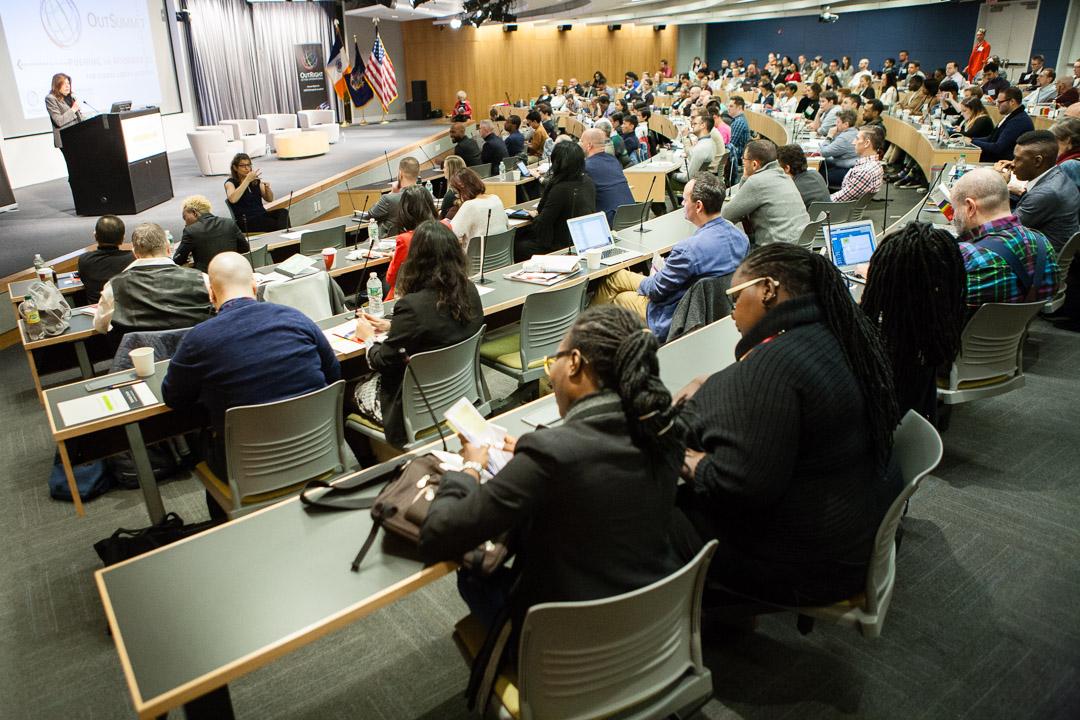
Press Release
UNGA Adopts Resolution on Extrajudicial and Arbitrary Executions with Mention of Sexual Orientation and Gender Identity for 20th Year
New York, New York - November 11, 2022 - During the 77th session of the United Nations General Assembly (UNGA), the Third Committee that focuses on Social, Humanitarian & Cultural Issues, adopted the Extrajudicial, Summary or Arbitrary Executions (EJE) Resolution, a text that focuses on the protection of all from extrajudicial killings, especially those who are most marginalized. It was co-sponsored by 66 states, showing growing, cross-regional support for the resolution as a whole, including the reference to sexual orientation and gender identity.
This year marks the twentieth anniversary of the inclusion of sexual orientation language in the EJE Resolution and the tenth anniversary of the inclusion of a direct reference to SOGI in the text. The EJE Resolution is the first-ever General Assembly Resolution to explicitly mention SOGI. It remains one of only two UNGA Resolutions with SOGI language, after the adoption of a 2021 Resolution on free and fair elections recognized limitations in accessing elections due to a number of characteristics including sexual orientation and gender identity.
“LGBTIQ people suffer violence and discrimination all around the world. Recognizing that no one should be extrajudicially executed, including due to their sexual orientation and gender identity is the minimum we can expect countries to agree upon. People of diverse sexual orientations and gender identities are particularly targeted for who they are and it is imperative that the United Nations recognizes that,” said Maria Sjödin, Executive Director of Outright International.
The Resolution on Extrajudicial, Summary, or Arbitrary Executions is presented for revision every two years at the United Nations General Assembly. This year's text, similarly to previous revisions, affirms the right to life, liberty, and security for everyone and acknowledges that impunity continues to be a major factor contributing to the continuation of extrajudicial, summary, and arbitrary executions. Crucially, it highlights the targeting of specific groups, including killings of persons belonging to national or ethnic, religious, and linguistic minorities, killings of members of indigenous communities, human rights defenders, lawyers, journalists, and demonstrators, as well as killings of persons due to their sexual orientation or gender identity.
An amendment presented by a group of countries attempted to replace the language on SOGI in the Resolution with a reference to only “sex." The amendment would have removed an important acknowledgment that LGBT people should be listed as a group deserving of protection against extrajudicial and arbitrary executions. Due to stigma toward LGBT individuals rooted in gender stereotypes and rigid patriarchal systems of power, people of diverse sexual orientations and gender identities are specifically targeted, suffering more violence and discrimination. This was recognized by the Member States, and the amendment failed with a vote of 88 against, 51 in favor, and 26 abstentions.
Following the failed attempt to remove the reference to SOGI, a vote was called on the entirety of the Resolution. The Resolution passed with a vote of 131 in favor, 1 against, and 45 abstentions. Passing the EJE Resolution with its reference to SOGI for the twentieth year is an important milestone in the recognition that LGBT people are particular targets of extrajudicial, summary, and arbitrary executions.

Read Our Publications
Since 1990, we have partnered with activists from all over the world to produce hundreds of groundbreaking reports.
Learn More